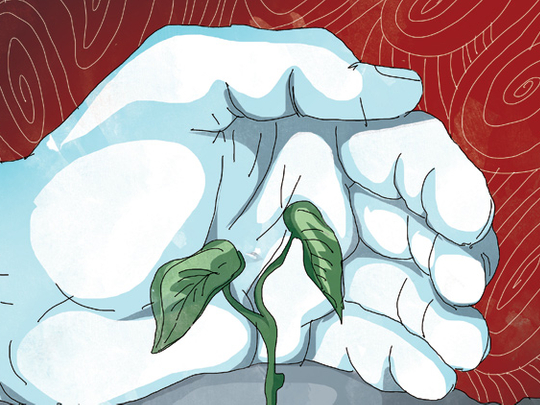
Across the range of international concerns today the one common theme is urgency. Debt. Climate change. The spread of nuclear weapons. These are all serious issues requiring earnest, immediate responses. Yet nothing will be more important to international stability and human progress in 2013 than advancing the aspirations of people who are upending authoritarian rule in the pursuit of self-government and a fair shot at success.
From the Middle East to Asia to Africa to Latin America, people of diverse cultural and religious backgrounds are agitating for change. Although democratisation has been going on almost constantly since the end of the cold war, the stakes are different today for three reasons.
First, the greater Middle East is faced with burgeoning youth populations and complex regional tensions. Emerging democracies there have little margin for error.
Second, transnational terrorism and insurgency warfare have altered the security conditions in many of the places where democracy is budding — endangering new freedoms and posing an international security threat.
Third, the past three decades of democratisation have brought many valuable lessons, but they have also raised expectations.
The unfolding experience in three countries — Egypt, Myanmar, and Malawi — highlights the importance, and difficulty, of getting the right mix of soil and water. If the revolution falters in the Arab world’s most populous country — Egypt — it may well be because of not enough public buy-in.
Emerging from six decades of authoritarian rule, the country quickly developed a lively discourse in the public square. But the constitutional process, culminating recently in a national referendum, was imbalanced towards the ruling party and its Islamist allies. The constitution passed the referendum with 64 per cent in favour; but voter turnout was low, only 33 per cent, and the run-up to the ballot was marked by boycotts and street protests.
A vital opportunity to engender credibility was needlessly jeopardised.
Myanmar, long one of the most sealed-off countries on earth, is making credible strides toward democracy after decades of harsh military rule. But the foundation for a democracy doesn’t really exist yet. The national legislature is still overwhelmingly controlled by the ruling military party, and political rivals cannot reach accord on power-sharing terms in a new draft constitution. Human rights abuses and ethnic violence continue almost unimpeded in sensitive areas of the country.
Other than being one of Africa’s most persistently impoverished countries, Malawi seldom garners attention, even on the African continent. But last April something significant happened. It began with the sudden death of President Bingu wa Mutharika, an economist and the country’s third president. The late leader’s brother and supporters saw an opening to take over, but the military stepped in to prevent them from circumventing the Constitution and ensured the legal succession of Joyce Banda.
As political scientists Greg Mills and Jeffrey Herbst observe, simply the operation of the Malawi Constitution under stress is encouraging on a continent once plagued by military coups d’état. They write that Malawi’s successful succession during a time of political upheaval shows why “even the partial liberalisation of most African countries, still falling well short of institutionalised democracy, is such an important development”.
In the coming months and years, countries such as Syria, Venezuela, and Zimbabwe will arrive at the threshold of democratic reforms. The choices they make and the processes they follow will be influenced and reinforced by events in neighbouring countries and lessons from farther afield. Building democracies is slow work. It is an imperfect project. But it can be mutually affirming. Twenty-five years ago, strongman rulers dominated Africa. Today no leader can avoid at least the language and motions of democracy. Will similar progress take root in the Middle East? Shortcuts don’t pay off. Inclusiveness in building strong institutions and durable constitutions is vital to success.
Christian Science Monitor
Kurt Shillinger is a former political reporter for The Christian Science Monitor. He also covered sub-Saharan Africa for The Boston Globe.











